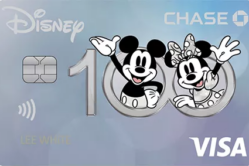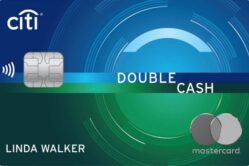I’m a big fan of credit cards – primarily because they offer some great consumer protections. For example, my credit card number was stolen and my credit card company’s fraud protection unit took care of everything. Because of this and other benefits of using credit cards, I recommend using a credit card if you can pay it off in full each month.
While many people with a poor credit score might think a credit card is out of their reach, there is good news.
Anyone can get a credit card – even if you have bad credit, poor credit, or no credit. The key is knowing where to look.
If your credit is less than stellar, then you should begin looking at prepaid cards and secured credit cards, both of which offer conveniences and benefits, and in the case of secured credit cards, help you build or improve your credit score.
Difference Between a Prepaid Card and Secured Credit Cards
Let’s start by outlining the differences between these cards, then take a look at the pros and cons of using these cards.
Prepaid credit cards
Basically, a prepaid card is similar to a gift card or prepaid debit card, but it is branded by a credit card issuer such as Visa, MasterCard, or American Express. They can be used virtually anywhere you can use a regular credit card, including online.
However, prepaid cards aren’t really credit cards – you prepay a balance on the card, then the balance decreases as you use it. If you need more money on your card, you load it by transferring more money to the card.
Secured Credit Cards
A secured credit card is a credit card, but it is “secured” with a deposit that acts as your credit limit and insurance for the issuer.
When you open a secured credit card you make a deposit with the issuer, make charges as you would with any other credit card, then you pay off the balance. Your deposit remains with the card issuer as insurance against a default, but it remains your money and you can use it to pay your balance or you can get it back when you close your account.
These cards are designed to help people build credit or improve their credit scores.
What You Need to Know About Prepaid Cards
As previously mentioned, prepaid cards work similar to a debit card – you are spending money you already have loaded onto the card.
There are a few advantages of prepaid credit cards. The first is that they don’t require a credit check. Since you aren’t actually borrowing money, the credit card company doesn’t need to know your credit score. And because you are spending money that has already been deposited, there aren’t any interest charges or monthly bills.
The main drawback to prepaid cards are the fees, sometimes including the following: loading fees, annual fees, set up fees, and occasionally a check deposit fee.
Additionally, most of these cards don’t report to the credit bureaus, so you may not be building your credit history or score.
What You Need to Know About Secured Credit Cards
The main advantage of using a secured credit card is to establish or reestablish your credit.
Secured credit cards report monthly to the credit bureaus, so you’ll improve your credit score if you’re paying your bill on time.
It seems ironic that you can improve your credit score by using a credit card, doesn’t it!? And in many cases, the company will increase your credit limit without charging you when you’re a good customer.
It’s highly recommended to keep at least half of your balance available at all times. That is to say, if you deposit $1,000, don’t spend more than $500 without paying it off. In this way, you’ll be building credit and showing that you’re able to live within your credit limit.
Many secured credit cards can be upgraded to a traditional “unsecured” credit card after enough time has passed and you have shown your ability to make payments on time.
The main drawback of these cards is that they often include a high set-up fee and many have an annual fee. If you’re rebuilding your credit, you might want to look into other options after you’ve been with a secured card for a year or so.
Features of the Best Secured Credit Cards: When you get a secured credit card, it is a good idea to make sure it has low fees, reports to all three credit bureaus, and is accepted anywhere that other credit cards are accepted. You can use some of these credit cards to help build or improve your credit score.
Remember, the difference between a prepaid card and a secured credit card is that a prepaid card isn’t going to improve your credit score. A secured credit card will over time, improve your credit score, and hopefully set you on the path to financial recovery.



Comments:
About the comments on this site:
These responses are not provided or commissioned by the bank advertiser. Responses have not been reviewed, approved or otherwise endorsed by the bank advertiser. It is not the bank advertiser’s responsibility to ensure all posts and/or questions are answered.
NatalieMac says
Just wanted to chime in to say that the Orchard Bank Secured Credit Card is really great. I made a lot of egregious mistakes with borrowing and credit cards and ended up in a pile of debt and with terrible credit. I carefully worked at getting everything paid off and was able to qualify for the Orchard Bank card even with my terrible credit. I was extremely cautious with it and made sure to make every payment on time. Within a year, I was able to qualify for a regular credit card from another bank. After having the secured card for a couple of years, I called Orchard Bank customer service to ask if my account could be switched over to a regular credit card. It’s my oldest account, so I was loathe to close it altogether. At the time, they said they could not switch it, but within a few months, I got a letter from them saying they were changing the card over and received a check refunding my deposit and a little bit of interest a week or so later. Since then, they’ve even raised my credit limit and I currently have a great credit score! It wouldn’t have been possible without the helping hand they offered when I was just starting to rebuild.
Ryan says
Thanks for sharing your story, Natalie. It’s great to hear from someone who has been able to improve their credit score through some hard work and careful planning! 🙂